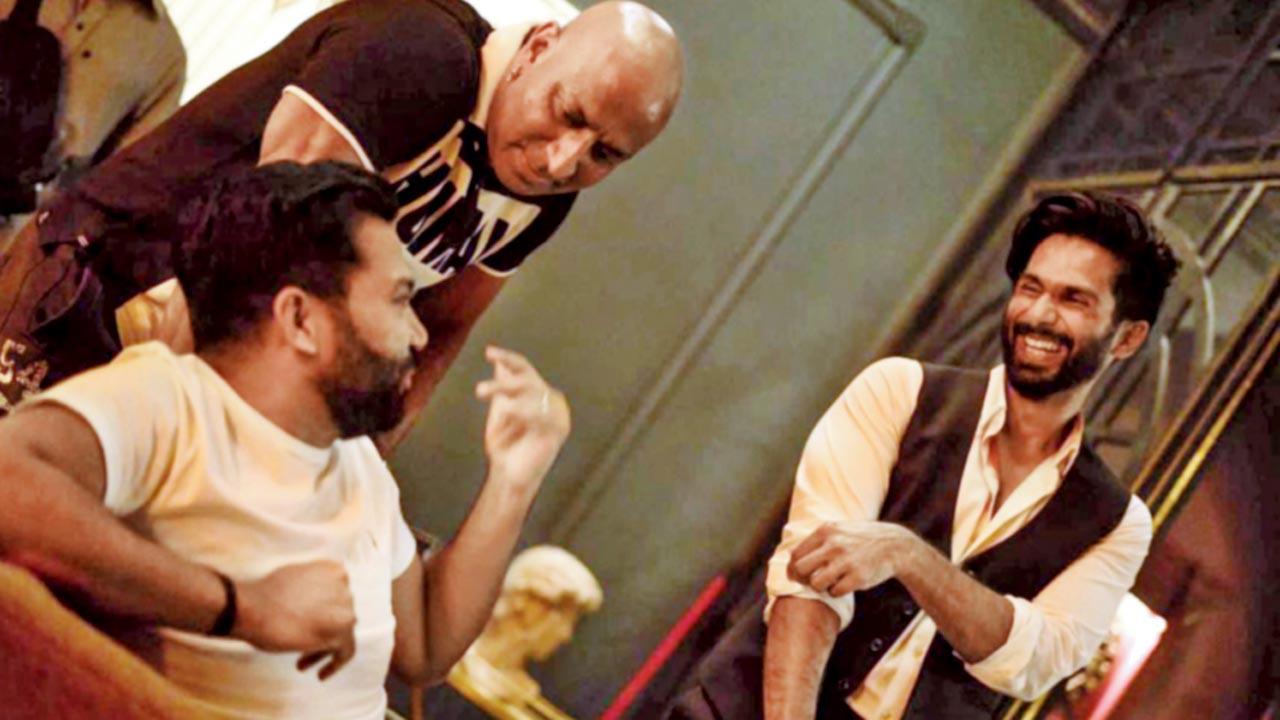I approach my work by considering the character, unless it is a Salman Khan film-Julius Packiam
8:16 AM
Posted by Fenil Seta

Tackling Shahid’s edgy actioner, and Diljit’s film on Sikh riots for director Ali Abbas Zafar, composer Julius Packiam on exploring diverse genres
Sonia Lulla (MID-DAY; August 22, 2022)
Reportedly inspired by the 2011 French film, Nuit Blanche (Sleepless Nights), Shahid Kapoor-starrer Bloody Daddy sees the actor as an undercover cop in a story about a drug heist that transpires over a night. Score composer Julius Packiam, a long-time collaborator of director Ali Abbas Zafar says the brief given to him was simple — to create a score that was edgy, young, and contemporary.
“The film is an edgy, fast-paced actioner, so he wanted a sound that was a hybrid of electronica and orchestral music. In this case, the edit defined the pace. Once the edit was locked, we could see that it kept viewers on the edge. To make music for such a film is easy. [As composers], we were only making the scenes look more presentable,” says Packiam, who was a senior to Zafar during their time spent in Delhi as students.
“He has been an assistant to Kabir Khan on films like New York, and in other movies of Yash Raj Films, where I was also working. So, we have shared a friendly relationship for 14 years. When he became a director, he wanted me [as composer]. Because I have done so many films for him, I have an understanding of what he wants. There’s nothing much to discuss, and even if he wants changes, they are only cosmetic.”
In a previous interview with this reporter, Packiam had highlighted how he would often accompany the cast of Ranveer Singh’s '83 for cricket practice sessions, which helped him create character motifs for the score. And even while Zafar too encourages such in-person interactions, Packiam says he didn’t have that advantage while working on Bloody Daddy. “We shot in the pandemic, and [shooting stints] were controlled. They shot in Delhi and Abu Dhabi, but we were in our own box.”
Ask him if he sampled the music of the French offering before working on his composition, and he responds in the negative. “But, we’ve used electronic, and funk-soul music that has been inspired by a track by Chaka Khan. There is also a [song] from the ’70s, and is one that Ali likes. So, we do have a mixture of a lot of elements.”
His next project with Zafar, however, is at stark contrast to this one. Packiam also joins hands with the director for Diljit Dosanjh’s Jogi, which depicts the horrors of the 1984 Sikh riots. “It is completely different from Bloody Daddy. It is soulful, poignant, and depicts pain. That needed to be reflected in the music. It has a few light moments, but it is essentially on how some people were saved from [murder]. It is an organic film,” he says, adding that as a composer, his task is to create music for characters without being influenced by the actors playing them.
“I don’t look at their off-screen persona. I approach my work by considering the character, unless it is a Salman Khan-film, where you need an entry that is loud. For the other actors, I look at the characters, address their needs, and think about how we can colour them. I don’t see them as larger than life.”
Since this film was also a pandemic baby, Packiam says he couldn’t interact with leading man Dosanjh to discuss the movie’s music. “But, we do have a Punjabi song, which is like a shabad, and a song that’s along the lines of Sufi rock.”
While his work on the two films is distinct from one another, Packiam points to the fact that their uniqueness also highlights Zafar’s skills as a director. “Jogi is unlike any Ali Abbas Zafar-film. It isn’t a tent-pole film with masala, but is poignant and subtle. It establishes that he can also pull off a sensitive story with flair, and for a director to have that bandwidth is amazing,” he says of the Netflix offering, which releases on September 16.

For Ali Abbas Zafar’s film with Shahid Kapoor
This entry was posted on October 4, 2009 at 12:14 pm, and is filed under
'83,
Ali Abbas Zafar,
Bloody Daddy,
Diljit Dosanjh,
Interviews,
Jogi,
Julius Packiam,
Julius Packiam interview,
Salman Khan
. Follow any responses to this post through RSS. You can leave a response, or trackback from your own site.
Subscribe to:
Post Comments (Atom)
Post a Comment